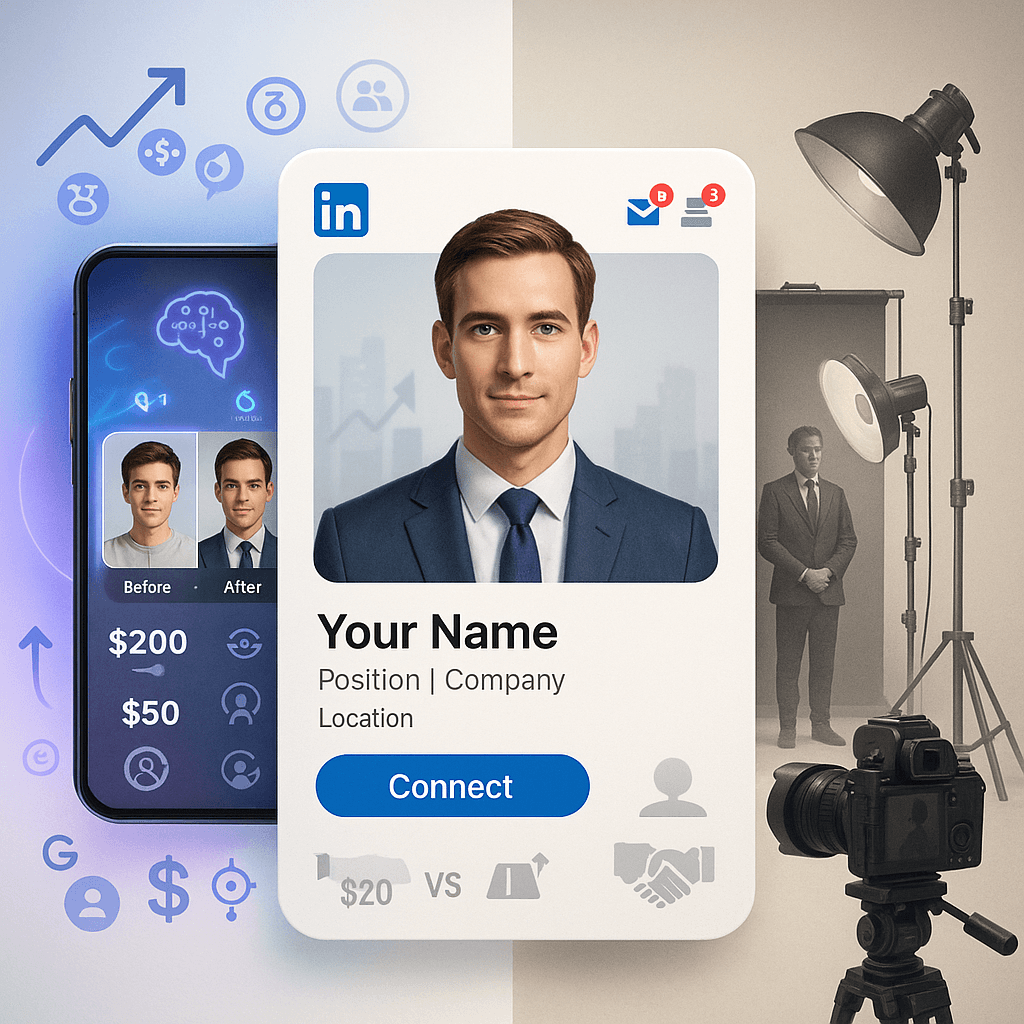The job hunt just got an AI makeover. Job seekers are ditching expensive photography studios for AI-powered headshot generators that cost under $50, with some users reporting 3-4x more recruiter messages on LinkedIn. But as the technology floods professional platforms, questions about authenticity and ethics are mounting among HR professionals.
The economics of professional headshots just shifted overnight. What used to cost hundreds of dollars and require studio appointments now happens in minutes from your phone. LinkedIn profiles are filling up with AI-generated headshots as job seekers discover a new edge in today's brutal hiring market.
"When I was at Yale, it was $200 for a 15-minute session for students," Melanie Fan, head of growth at AI shopping platform Plush, told CNBC. The process was "really expensive" and time-consuming, involving multiple rounds of editing and photographer communication.
That frustration has unleashed a wave of AI headshot services. Companies like InstaHeadshots, PhotoPacksAI, HeadshotPro, and Aragon AI promise professional-quality images in minutes for under $50. Users upload selfies, pick backgrounds, and get dozens of polished options without ever stepping foot in a studio.
The results speak for themselves. Fan saw her recruiter outreach jump dramatically after switching to an AI headshot. "After I changed my LinkedIn photo, the amount of inbound I've been getting from companies has skyrocketed," she said. "Three to four times more messages from companies."
Major platforms are taking notice. Design giant Canva recently launched its own AI headshot feature, joining the rush to democratize professional photography. The timing couldn't be better - according to Canva's job market research, 88% of job seekers now believe a polished digital presence influences hiring decisions, up 45% from the previous year.
"This is just a more accessible way to get professional and unique headshots," Danny Wu, Canva's head of AI products, explained. The goal wasn't to replace real photography but to make high-quality imagery available regardless of budget or location.
But the AI headshot boom is creating new tensions in recruiting. Hiring managers are playing detective, scanning profiles for telltale signs of artificial enhancement - overly smooth skin, perfect lighting, or that slightly-too-polished look that screams algorithm.
"A poorly done AI-generated headshot is easily recognized, reads as inauthentic, and can hurt the candidate's chances," warned Sam DeMase, a career expert at ZipRecruiter. The technology walks a fine line between enhancement and deception.












